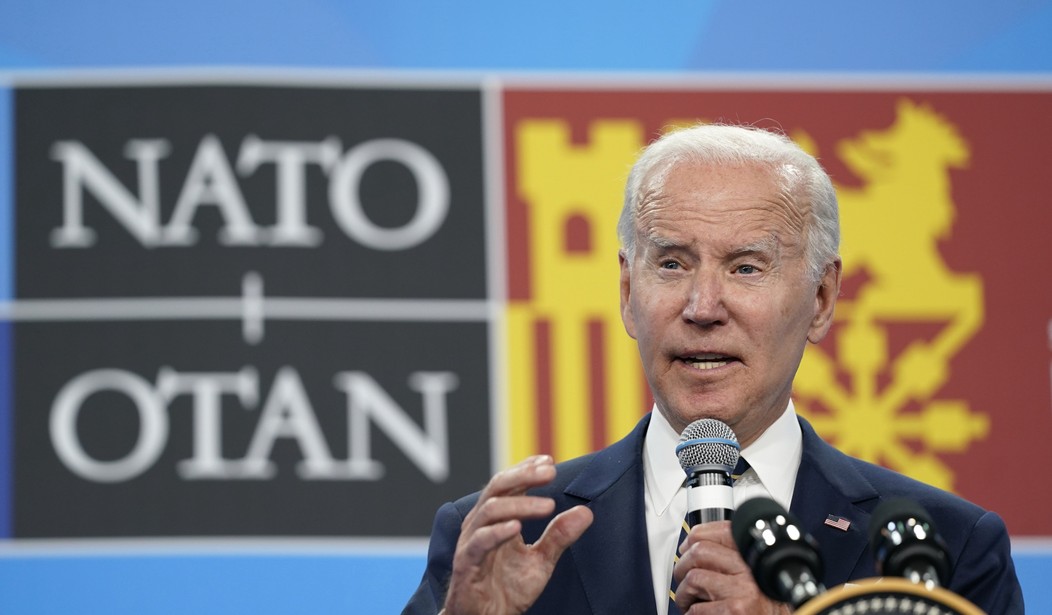The next NATO Summit will begin on Tuesday in Vilnius, Lithuania, and it’s already clear that there are serious strains in the alliance that leaders will be hard-pressed to paper over in order to be able to create an end document that will tell the world how united NATO is, how much members like each other, and how the members don’t have a care in the world.
In contrast, NATO headquarters in Brussels has seen several diplomats emerging after marathon negotiating sessions looking worn and haggard as the remaining issues that need to be resolved before there is unanimity are proving more intractable than usual. There are several thorny issues that need to be resolved between member states and within the alliance itself.
Sweden had been hopeful that its membership would have been approved by now. But the unanimous vote needed to welcome Sweden is being blocked by Turkish President Recep Tayyip Erdogan over the shelter Sweden has given Kurdish activists — and armed militias — over the years. It’s a sticky subject that newly renamed NATO Secretary-General Jens Stoltenberg has been working to resolve before the Summit. Stoltenberg has served as secretary-general since 2014 and is seen as a uniter and effective facilitator. He says he’s planning to sit down with both Erdogan and Sweish President Ulf Kristersson to see if Erdogan’s objections can be overcome.
But Stoltenberg’s talents as a pragmatic uniter will be put to the test over the issue of what to do about Ukraine’s pressing request for NATO membership. In fact, there is going to be a scramble between now and the end of the Summit on Wednesday evening when the communiqué is delivered.
Stoltenberg said the leaders “will reaffirm that Ukraine will become a member of NATO and unite on how to bring Ukraine closer to its goal.” NATO first pledged that Ukraine would become a member one day in 2008, but things have evolved little since then.
Asked when, or how, Ukraine might join, Stoltenberg said that the “most important thing now is to ensure that Ukraine prevails.” The U.S., Germany and some other allies consider that Ukraine should not be invited in while it’s at war, so as not to encourage Russia to widen the conflict.
The divide in the alliance is between newer NATO members who had been under the yoke of Communism until recently. They want a fast-track membership for Kyiv — something the U.S. and Germany want to avoid until after the war with Russia is settled.
That may prove to be problematic. There are many issues that would make Ukraine an alliance outlier and cause some members to swallow hard before accepting them into NATO.
Ukraine’s government is corrupt. The judicial system is corrupt, and there are some very unsavory characters that NATO would have to accept if it allowed Ukraine to join the alliance.
Indeed, Ukraine has improved — sort of. Transparency International‘s Corruption Perceptions Index (CPI) had Ukraine ranking 130 out of 180 countries in 2017. That ranking has slightly improved to 122 out of 180. But it still makes Ukraine the second-most corrupt nation in Europe after Russia.
For that reason and many others, some alliance members want to be as vague as possible in telling President Volodymyr Zelenskyy when Ukraine will be allowed into the club. But neither does the alliance want Zelenskyy to go away mad. They’re prepared to offer some concessions to raise the status of Ukraine within the alliance.
One offering for Kyiv that members recently agreed on is to elevate its status in relation to the alliance. A new NATO-Ukraine Council will replace an existing lower-level commission. A negligible change in name, it holds great political significance, Stoltenberg said.
In the new council, Ukraine will sit as a peer with NATO, not a junior partner, as in the commission. Ukraine will have the right to call a meeting of the council, which will have a crisis consultation mechanism, be able to establish working committees and take binding decisions.
On such trivialities as a name change for a powerless committee do great alliances function.
Will Joe Biden mention that almost all NATO members haven’t fulfilled their promise to increase defense budgets in response to Donald Trump’s jawboning at the 2018 summit? It’s a very sore subject with many NATO members including Canada and Great Britain, whose percentage of military contributions to the alliance has actually fallen.
No. We don’t expect Biden to whisper a word.










